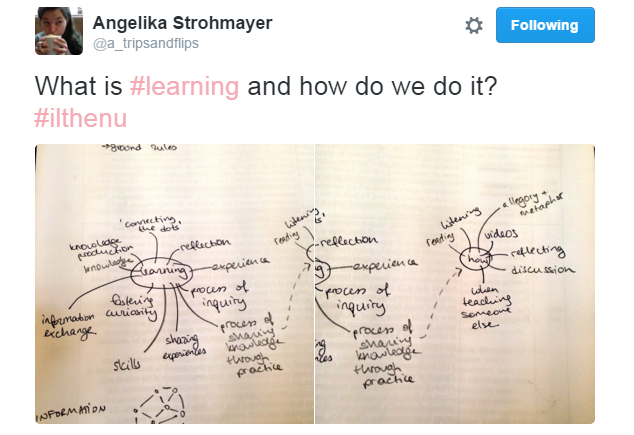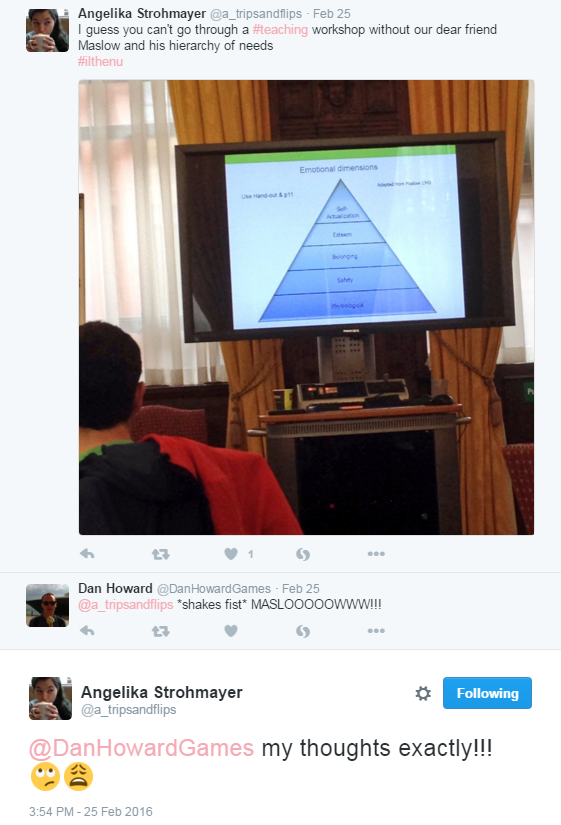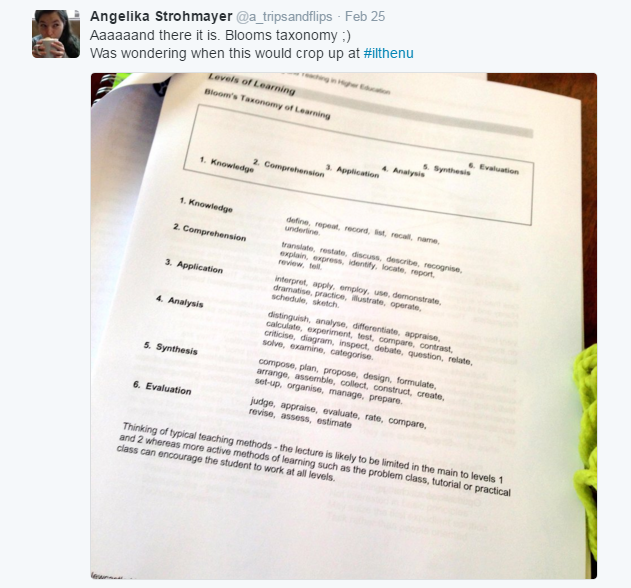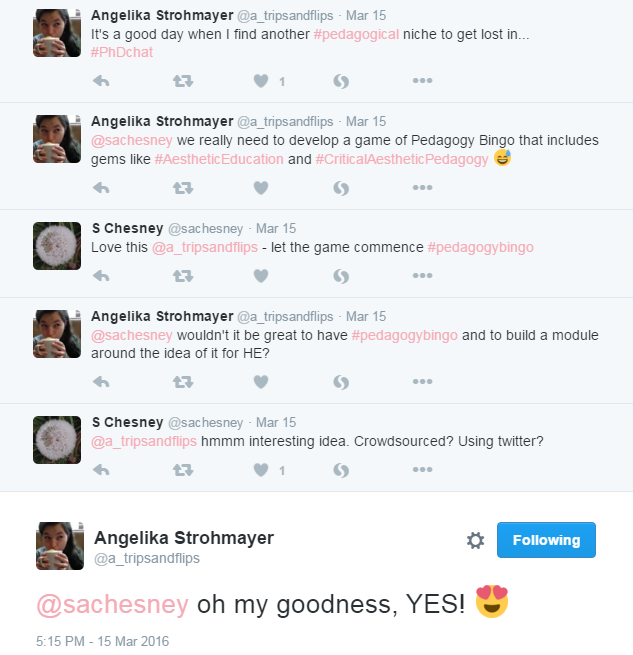Let’s say you have the chance to design a University module on learning and teaching; which terms, pedagogues, theories would you include as part of the content? What would your ideal reading list look like? Would you focus on things like Maslow’s hierarchy of needs, would you try to include some e-learning, or would you go as far as including anarcho pedagogy?
A few weeks ago, I attended a two-day Introduction to Learning and Teaching in Higher Education (ILTHE) workshop that was facilitated by Sarah Chesney. Throughout the two day event, I tweeted my thoughts, notes, and opinions using #ilthenu
With interactions like these, Sarah and I started a little joke: #PedagogyBingo was born!
After the workshop finished, Sarah and I stayed in touch on twitter, continued our joke for a bit, but then got serious after the following interaction occurred:
After this, I e-mailed Sarah my thoughts on the project and she responded, quite enthusiastically, that we should make this happen.
Together, we developed an action plan to figure out how we could go about crowdsourcing #PedagogyBingo, and now we need your help!
The concept
The idea we had was to crowdsource key terms that should be included in a perfect learning and teaching module at university. This will happen publically on twitter where (hopefully) lots of people will get involved to share ideas, theories, and resources with us and the rest of the world using #PedagogyBingo.
Benefits
This is not only a fun activity to do to get some insight into the traditional and novel pedagogies and theories out there, but it will hopefully also be beneficial to us and the larger education community on twitter. Some of the benefits of bringing together twitter experts on the topic include:
- Discovering new practitioners to follow and grow our own networks
- Discovering new resources and possibly new/emerging learning and teaching terms
- We will learn something new about Twitter and crowdsourcing
When the list is compiled and published it will hopefully be a useful resource for:
- Educational Developers who want to cross check their own key terms with the list
- Lecturers, tutors and professionals supporting student learning who want to informally develop their practice
- Applicants for HEA Fellowship who are assembling their claim for recognition
- Participants on ‘Learning and Teaching in HE’ courses
- Students studying Education at any level trying to get an overview of important terms, theories, and pedagogies
Taking part
Since this is a crowdsourced effort, this will only work if people take part!
Step 1: Tweet, tweet, tweet about your thoughts and ideas, share theories and resources, and don’t forget to use #PedagogyBingo.
Step 2: ‘Like’ and ‘Retweet’ any tweets that you see in the hashtag. Reply to tweets that you want to respond to and/or add any resources you have on the specific idea expressed in the tweet.
Sarah and I will collate a list of interesting resources, names, theories and share our results in a number of places (primarily over at flourishlearning.co.uk though). We aim to start collating the responses in the week beginning the 10th of April, so there’s lots of time for you to get involved!
(We’re thinking about what to do with this list beyond simply collecting and collating it – there are thoughts and conversations about creating an app, interactive website, or even trying this out in a course at some point!)
Both Sarah and I are really excited about this project, so please help us out in this hopefully valuable and fun activity.
Cheers,
Angelika x
Sarah Chesney is a guest tutor for Newcastle University’s Staff Development Unit. She is one of the ILTHE workshop facilitators and a tutor for CASAP.
Angelika Strohmayer is a PhD student interested in digital technologies, informal critical pedagogy, and participatory research methods and methodologies. She is registered in ECLS but is based in Open Lab, working on various projects related to homelessness, sex work, and informal peer sharing for learning and support.







